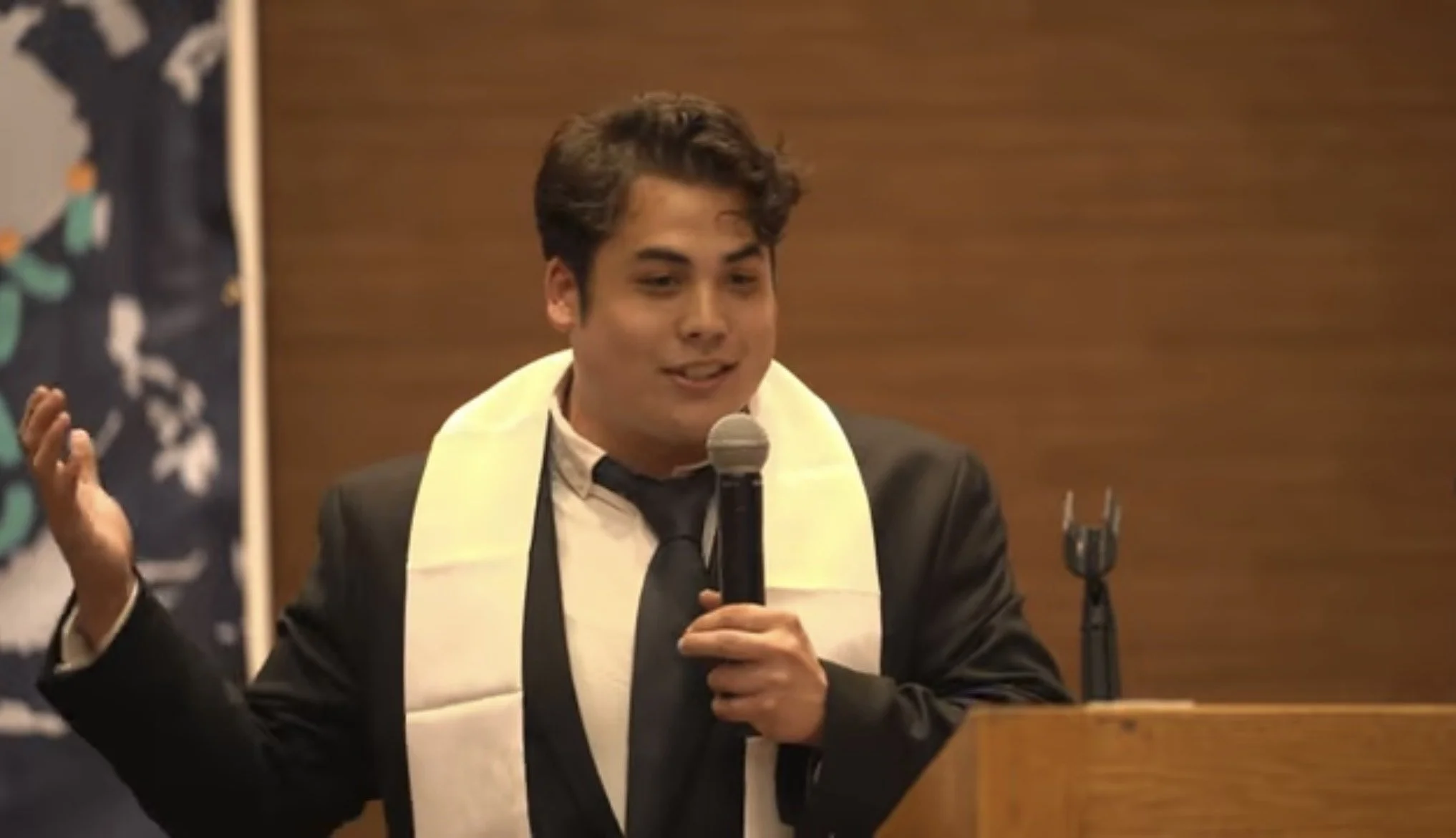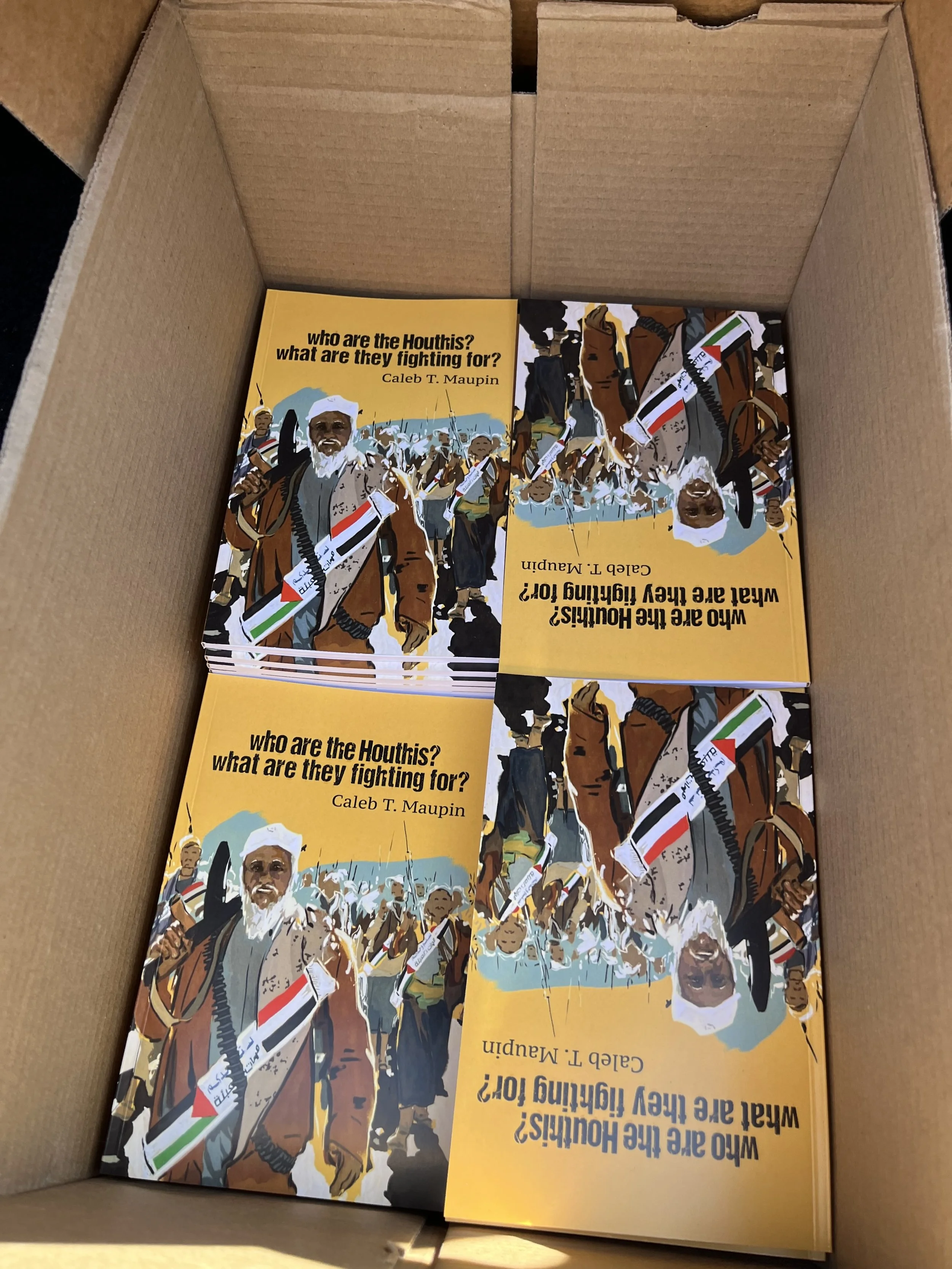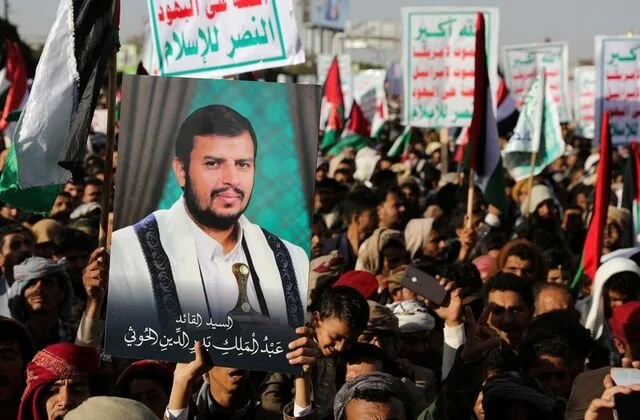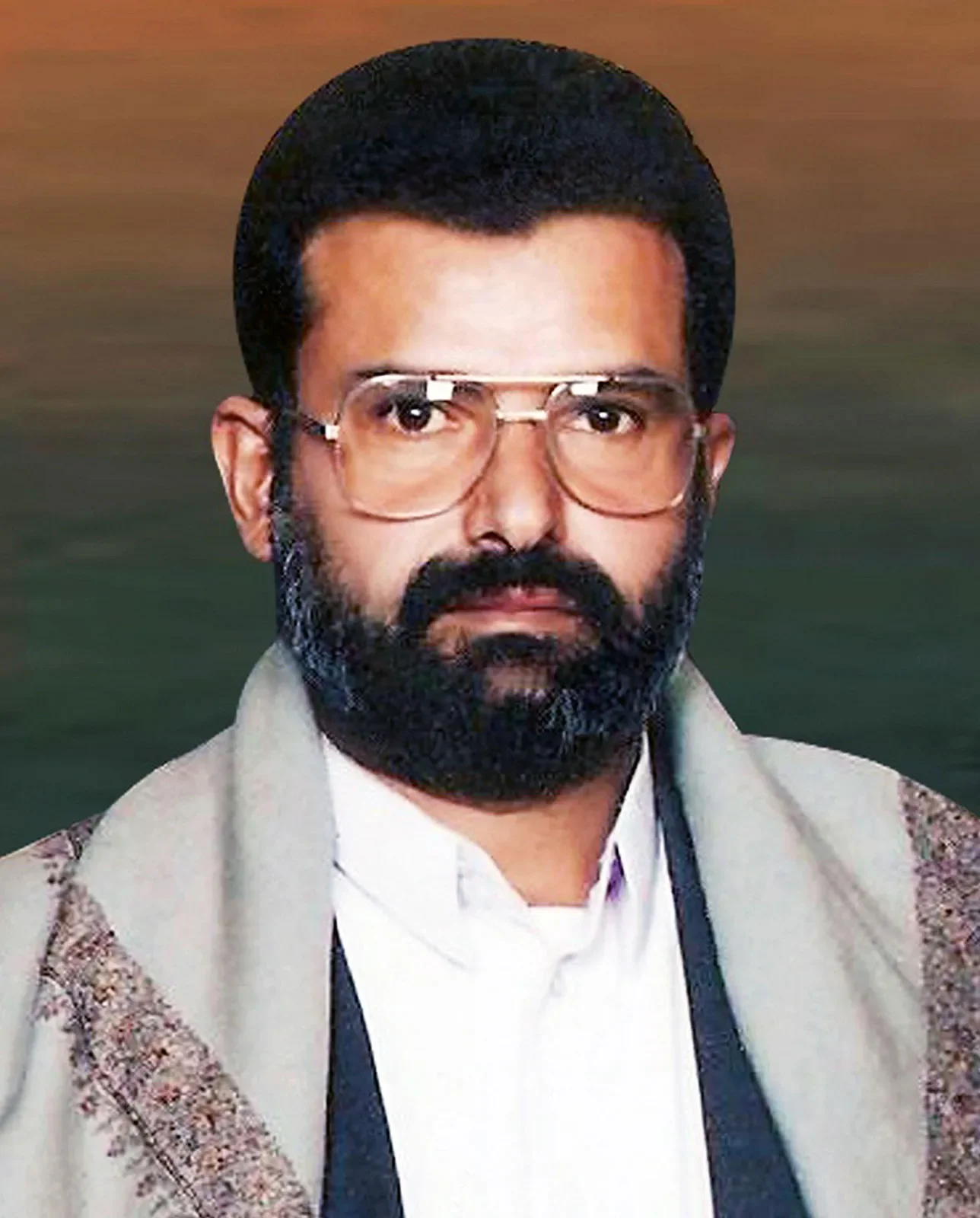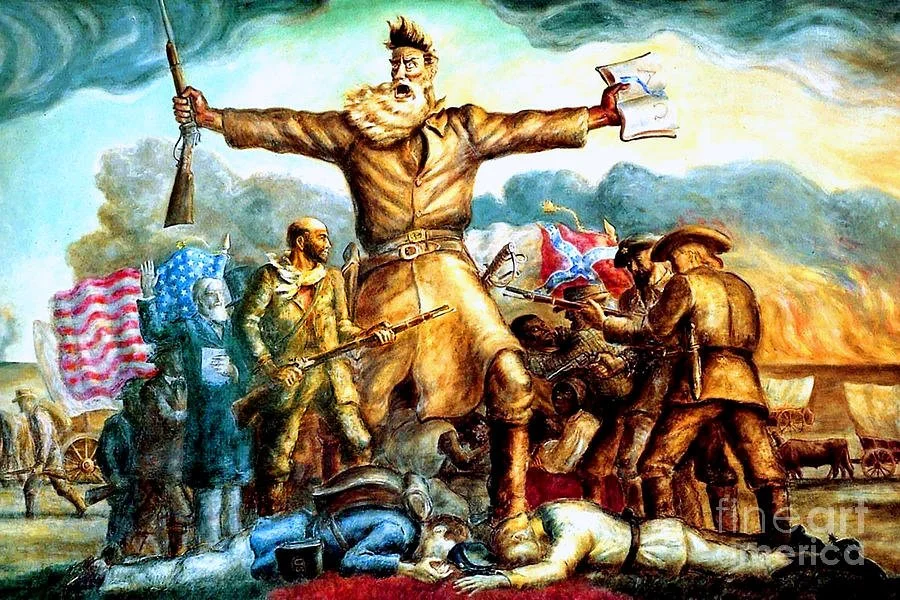Yemen & Opposing Imperialism in America - Noah Schenk at the Great Unity Convention
This is the text of the presentation given by CPI organizer Noah Schenk to the 2025 Great Unity Convention of the Center for Political Innovation on July 12th in Chicago.
After October 7th and what the Houthis have been heroically doing in the Red Sea—blocking Israeli and American ships, people who were aiding in the genocide against Gaza from doing trade on the global stage—we were able to, after the subsequent bombing of them, get out this book in record time. Its called Who are the Houthi’s and What are they Fighting For?
I’ve spent the last month doing a lot of outreach specifically oriented around this book. I’ve been going to a lot of mosques. I’ve been going to “Hands Off Iran” rallies and “Free Palestine” rallies and handing them out to people. And while the reactions are mixed—obviously, it’s quite a controversial topic—you’ll get Zionists sticking cameras in your face, convinced that they’re going to cancel you somehow, or the occasional person will think you’re a cop and run away.
But overwhelmingly, the reaction has been very, very good. I just remember going to Palestine rallies or “No War with Iran” rallies, and I would take these big—if you’ve ever worked in a paper warehouse, they have these big carts—that but full of books. They hold like 500 books each, and I would carry it on my shoulder because oftentimes, I would have to go alone.
Sometimes the protesters would be mixed. They’d say, “I’m not interested,” or, “I have my own thing,” or they’d try and give you a piece of paper or whatever. But the people going by, especially if they (the protesters) were marching—they would look at it like it was something alien, something precious. And they felt like they had to grab it up.
And that was my experience elsewhere too. I went to a Shia mosque as well. I had called ahead and spoken with an employee. I wanted to be respectful. I didn’t want to show up at a time that would have been inappropriate. I asked him, “Is there a time I can come and talk to you about our conference and give you a copy of the book?” He was wary, but he allowed me to come. He told me to come at a certain time, and it was actually during a time of prayer that he invited me.
So I felt kind of awkward about it. I tried to remain respectful. Obviously, prayer is something very precious to people. I myself am not a Muslim—I don’t even know how to pray—so I was kind of going through the motions. But I had the books with me and was careful not to distribute them during prayer, not to be disrespectful.
Not Vengeance but Understanding
I remember a lot of the older members—they would look over at the book. They were from Iran, or from Pakistan, or wherever. They were devout Shia Muslims who care about justice, and they would just grab them from me. The imam was giving me looks, and I was like, “Hey it’s not me, man.” It’s just that this book is something that’s really special. And I didn’t even feel like I was doing that much. But a younger member of the mosque was next to me and asked, “What are you doing here?” I explained the situation. He asked, “Well, are you Muslim?” I said, “No, I’m a Christian.” He said, “Oh, well that’s really interesting. You don’t really see a lot of people like that. What you’re doing is really special.”
And it’s true. What CPI has done with this book is extremely special. That’s why we’ve gotten the reaction that we have. Just in the time that I’ve been here, we’ve distributed 2,000 books. And it’s not just a dry academic history of the Houthi movement. It’s a book that explains to Americans why they should care.
Somebody who doesn’t even really care about the intricacies of Islam or maybe just vaguely understands that the Palestinians are right and the Israelis are wrong—they can look at this book and learn.
That is really important. Because ever since October 7th and the bombings in Gaza, the world has been looking on in awe at what the Houthis have accomplished.
By most metrics, Yemen is the poorest country on the face of the planet. These are desperately poor people. They live in conditions that are unthinkable to us in the West.
What we saw was this generation’s Vietnam. We saw people who are poor and oppressed—many of whom work in agriculture. This is a semi-agrarian society—and they were able to defeat something that brands itself as the greatest military power on Earth.
I think Chairman Mao said: “A small country can surely defeat a large country. A weak country can surely defeat a strong one—if only they dare to rise in struggle, take up arms and grasp in their own hands the destiny of their country. “
And that’s what they’ve been doing. They’ve been struggling. I am in awe of that myself. It’s hard for me to wrap my head around.
But I must say, when I look at some of the support that I see for Ansar Allah—for the Houthis— online, I’m disappointed.
I’ve seen TikToks, I’ve seen posts on Instagram, and it’ll be something like this: some teenager talking about the injustice that is American bombing of the Houthis and trying to prevent them from blocking ships in the Red Sea. And they’ll say something like, “Oh, well those American
servicemen are gonna [expletive] around and find out. They’re gonna learn that the Houthis mean business, and we’re gonna kill them,” and all that.
It’s like—you're an American. You should weep for the fact that even one American serviceman would die for Israel’s unjust war in the Middle East.
You know, that speaks to something really sick in our culture. And it’s not just on the left—it’s on the right as well. A lot of people get into politics and take positions not because they really believe in them, but because they want to piss off somebody they don’t like. You know, they become communists because they want to piss off their parents who were mean to them or the people who bullied them in high school.
And it happens on the right too. I’ve met so many young men—I’ll walk up to them, they’re wearing a cross around their neck, and they’ll tell me they’re evangelicals. I’ll be really interested, because I’m interested in people who are ideological. I’ll ask, “What speaks to you about the teachings of Jesus Christ?”
And they can’t tell me anything. They can’t tell me how Jesus Christ was a revolutionary who stood up to the slaveocracy that was the Roman Empire. They can’t tell me how he cared for the poor, the sick, the oppressed.
What they think is: “Well, woke people don’t like Jesus, and I don’t like woke people, so therefore, I like Jesus.”
And that’s not the right way to approach any issue. When you support something—when you support a movement, whether critically or otherwise—it has to come from a concrete understanding, a real understanding of where that movement is and where it’s going.
(It’s a great title for a book.)
Conditions of Yemen and the Origins of the Houthi Movement
I’d like to take a step back for a second. I’d like to ask: Where do the Houthis come from? Because to understand the Houthi movement, you have to understand Yemen and how it developed historically.
Yemen is a deeply poor country. By many metrics, the poorest in the world. In fact, the CIA World Factbook—an imperialist source, so they’re not lying—estimates that 25% of the population does not have proper access to food, and nearly 30% of the population is completely illiterate.
Now, that doesn’t mean they can just barely read—it means they are completely illiterate. Can you imagine how humiliating that is? In the West, it’s almost impossible to comprehend because we take reading for granted. Reading is a basic dignity.
Imagine how difficult it would be to navigate your life—you can’t read a road sign, can’t read a menu at a restaurant, can’t text your friends. Imagine being asked to read something basic and having to look someone in the eye and say, “I can’t read.”
And part of the reason Yemen is so poor is actually that they’re not poor. Countries that are extremely poor tend not to be poor at all.
A good example is Nigeria. It’s very similar to Yemen. The people of Nigeria are extremely poor despite the fact that, like Yemen, it is a very wealthy country. Both countries have tremendous oil and mineral wealth.
So why can’t they develop that wealth? Because of a system that some call globalism. On the left, we call it imperialism.
It’s a system where banks and monopolies intentionally underdevelop countries to turn them into captive markets. So instead of Yemen being able to act as a competitor to BP or Shell or Chevron, they have to go to market with crude oil—which is worth far less than refined oil—and sell it to the Saudis at a robbery price. Then it's refined and sold back to them at a profit.
They’ve been turned into a captive market.
Yemen is a very tribal society. The north and the south are very different. And that also speaks to imperialism, because many of the borders in the Middle East aren’t real borders. They were drawn up by the British after World War I—basically with a marker on a map. They’re not real.
The south of Yemen was, for many years, in fact, an entirely separate country. For most of the 20th century, it distinguished itself as the only Soviet-style socialist country in the entire Middle East. Now, of course, we have other anti-imperialist movements in the Middle East: we have Ba’athist Arab socialism, we have Shia revolutionary Islam, we have Nasserism—but South Yemen specifically was like a mini Soviet Union in the Middle East. It was very interesting—full Marxist-Leninist.
But the northern Yemenis are very different. While the southern Yemenis tend to be overwhelmingly Sunni and more secular, the northern Yemenis are extremely religious. They’re part of a somewhat obscure sect of Islam called Zaidi Shia, which is often described as a kind of compromise between Shia and Sunni Islam.
The majority of Shia Muslims in the world are what we call Twelver Shia. They recognize twelve imams after the Prophet Muhammad. After the Prophet’s death, there was a split between the Sunnis and the Shia. The Sunnis recognized the Umayyads, who had been elected officials, whereas the Shia recognized the imams—religious scholars who spoke for the peasants, the oppressed, and the exploited. They created a revolutionary movement of the poor to battle the Sunnis in that way.
Zaydis, however, only recognize five imams after the Prophet Muhammad—up to Imam Zayd. Imam Zayd was martyred. He was a revolutionary who led an uprising against the corrupt Umayyad rulers who were exploiting the poor. He was killed on the battlefield—shot through the head with an arrow.
And after he died, they didn’t just bury his corpse. His followers tried to respectfully bury him and pay their respects, but the corrupt government wanted to make a statement—that standing up for the oppressed and exploited would not be tolerated. They dug up his body and re-crucified it, displaying it publicly to show how little they cared about him or his cause.
Possessing the Power of the People: A Movement Against Austerity
Now, we can talk a lot about religious differences and ethnography of the region, but if you really want to understand any movement, it’s important to understand where it aligns economically.
What does it speak for in physical terms?
Because we can talk about the Houthis as a religious or ethnic movement—but that might read as foreign, especially to an American audience. It might be hard for us to make sense of that kind of religious zealotry, especially from a religion that many of us don’t practice.
So if we really want to understand the Houthi movement, we can begin to understand it as something very familiar to us—especially since the 1980s, with the way our own economy has been utterly destroyed by neoliberalism.
We can understand it as an anti-austerity movement.
Fundamentally, the Houthi movement—at least as it behaves in Yemen and in its origins—is a movement against austerity. Against the austerity imposed on them from above. Against being kept poor by outside powers. It’s a movement for self-determination.
The Houthi movement traces its origins to a religious scholar named Hussein al-Houthi. He was a former member of the Yemeni House of Representatives in the 1990s. And during his tenure, he didn’t do what American politicians do—get elected and immediately abandon his base, start selling weapons to Israel, etc.
Instead, he used his platform as a politician to champion the people. He began to establish medical centers, schools, and charitable organizations to help alleviate people’s suffering. He founded a group to carry out that work called The Young Believers, founded in 1992. It provided children in a deeply impoverished country with education—and what’s more, with an ideological orientation through which they could begin to make sense of their lives.
Now, people look down on that. They say it’s brainwashing or propaganda. But I’d like to read you a quote from Hussein al-Houthi—from a sermon we had translated for the book—and then I’ll talk about what that education program really meant to the people of Yemen.
He said:
“But they do not want us to farm. There are tanks from which people drink, but from which they don’t. They don’t want us to plant, because they know what it means to cultivate.
Whenever we cultivate our power—when we possess our power—we are able to say no. We are able to scream in their faces.
We are able to make the decisions that befit us in front of them.
So long as we do not have anything, we cannot say anything.”
So when I look at the education programs the Houthis created for their people, I don’t see a group of brainwashed ideologues. I see a people desperate to self-actualize.
And that’s not totalitarian at all.
In fact, what would be totalitarian is if they submitted to the Western system—against their own self-interest, against the interests of their friends and neighbors and countrymen—just because they wanted to be “free thinkers,” like we claim to be in the West.
There are some interesting statistics about Americans I’d like to share.
One in five Americans is effectively illiterate. That means they struggle with basic reading comprehension. Many can’t read a paragraph and then explain what it said.
And that’s done on purpose.
We’re the wealthiest country in the history of the world.
What’s more—by some measurements, a survey done by National Geographic estimated that almost half of young Americans can’t point to their own country on a map.
Now, you can say whatever you want about the Houthis or about the Young Believers—but I can guarantee you those kids can point to their country on a map.
When I look at the Young Believers, when I look at the Ansar Allah movement, I see a people opposing the same kind of anti-farmer stuff they’ve been pushing all over the world—the sort of degrowth ideology.
It’s the same thing that was done in Europe. Remember the Dutch farmers movement? Or look at what happened to the people of Mexico, who have been growing their own food for thousands of years, but under NAFTA are forced to buy all their agricultural goods from American agribusiness. And then we complain about why they’re immigrating to grow our crops for American companies.
It’s because of NAFTA. It’s because of trade deals like that—meant to keep the Mexican people poor.
The Promise of a Martyr: The Houthis Come to Power
Following the U.S. invasion of Iraq, the official government of Yemen—a U.S. puppet regime, installed and supported by the U.S. and the Saudis—became increasingly intolerant of the Houthis.
Why? Because of many things.
The Houthis had opposed the Iraq War. They had opposed the invasion of Afghanistan. They had criticized the Islamophobic rhetoric of the Bush regime. They spoke about how the War on Terror would be used as a justification to squash any resistance movements around the world— especially in the Middle East.
George Bush gave his famous "Axis of Evil" speech, where he named three countries that had nothing to do with each other: Iran, North Korea, and Venezuela. Somebody connect the dots on what those countries have in common—ideologically—besides the fact that they won’t do what we tell them.
So, following a meeting with Colin Powell, who was Secretary of State at the time, Ali Abdullah Saleh—the puppet dictator we had installed—placed a bounty on Hussein al-Houthi’s head: $55,000. That’s a lot of money in a country like Yemen.
And before his death, Hussein al-Houthi had been in a café with some of his followers. It was blown to pieces by Saudi bombs. He was in there with twelve of his followers—all of whom were killed.
In his final sermon, before he was martyred, he gave a speech to his followers and told them: a time would come when the Houthis would be the only people in the world who would have the courage to stand up for the oppressed people in Palestine. And that it would be their duty to do so.
So in the absence of Hussein al-Houthi, Ansar Allah began to take on the nickname “Houthi.” It had previously been used as a slur—like calling them hillbillies or hicks. It acknowledged that Yemen is a somewhat tribal country, and “Houthi” is a tribal name. They refused to call them “followers of God.” They called them “hicks.”
But the movement began to wear that label as a badge of honor. Because their hero—the man who had helped them transform their lives, who had helped them self-actualize—had been martyred in an act of cowardice.
Over the course of the next ten years, the Ansar Allah movement began to transform itself. It began to build. It began to grow.
During the Arab Spring, the Houthis took advantage of the U.S.-backed chaos in the region. The United States took advantage of social media and other tools and fomented coup after coup in Middle Eastern countries. They used it to bring down Libya, to bring down governments in Egypt and across the Middle East.
The Houthis saw this. And they understood—yes, obviously this is bad, obviously it’s coming from above—but they acted like real revolutionaries.
They didn’t say, “Oh, well those are just U.S.-backed NGOs.” Instead, they looked and said: “You know what? I disagree with Ali Abdullah Saleh. The way he governs is wrong. What the protesters are saying about him is right.”
And in spite of the fact that this unrest was being stirred up by outside forces, they supported it.
They began to act as bodyguards. They stood up for the Yemeni people. They showed up at demonstrations as armed patrolmen. They protected people from Saleh’s forces.
And they used that clout to build a progressive coalition—a coalition of forces all across Yemen, from various belief systems, who were united in opposing austerity, degrowth, imperialism, and globalism.
Hussein Al-Houthi, member of the Yemeni Parliament and founder of Ansurallah.
That included a number of forces: Zaidi Shia like themselves, communists from the south of Yemen who were Sunnis, and even a feminist group led by a woman named Leila Al-Lour, who headed the Arab Hope Party.
Eventually, in 2015, they were able to seize power. They ousted Saleh and took the presidential palace.
And one of the ways they were able to do so was not by saying, “Oh, this guy is just a bad king.” Instead, they pointed to something concrete—something economic.
They pointed to the fuel subsidies in Yemen. Many Yemenis had relied on those subsidies to feed their families. Fuel is very expensive. Yemen is very poor. And the government had been subsidizing the cost of farming, transportation—basic survival.
But under pressure from the IMF and the World Bank—imperialist institutions—the government decided it didn’t have to pay for that anymore.
And the public outrage over the removal of those subsidies—that’s what allowed the Houthis to come to power.
The American Spirit Lives in Yemen
Now, there’s a great deal of effort in American media and elsewhere to try to paint the Houthi movement as something deeply foreign. As Islamic. As “other.” As a bunch of scary people shouting at you about how they don’t like you.
But when I look at the Houthi movement, I see something deeply American. When I look at the Houthi movement, I see something deeply American.
And—this is sort of an aside—but for one thing, they’re really big advocates of the right to bear arms. You know, they say you’ll pry that gun from their cold, dead hands.
You look at their logo—it’s a shaft of grain, which symbolizes economic growth and prosperity, their opposition to austerity—and a rifle. And that’s part of their religion. There’s a passage in the Qur’an that says it’s the duty of every man to have a sword in his home to defend his family. And the Zaidi Shia interpret that to mean that every man should have a gun to protect his family and community.
That sounds pretty American to me.
But more than that—that’s the surface level. There’s something deeper.
When I look at the Houthis, I see a deep yearning for justice. It’s in their souls. It drives them to transform their people, their communities. It drives them to inspire the consciousness of people all around the world.
When I look at the Young Believers, and the way they were able to use charity work to educate young people, to give them an ideology through which they could make sense of their lives—I see Fred Hampton. I see the Black Panthers. I see their free breakfast program.
When I see a group of people blockading trade in the Red Sea—preventing the British imperial system from looting the people of that region—I can’t help but think of Boston.
I’m from Boston. Every year we celebrate the Boston Tea Party. The British were forcing us to buy tea at exorbitant rates, exploiting us, refusing to let us develop economically. And we said, “Screw you,” and dumped all their tea in the harbor.
When I look at the Houthis, I see city builders. I see people building a movement for growth, for prosperity, for justice.
I see the civil disobedience of Martin Luther King. I see Rosa Parks. I see a yearning for justice.
And to be honest, I know I said earlier that religious fanaticism and zealotry can seem kind of foreign to Americans—but I don’t even think that’s really true.
When I look at the Houthis—when I see pictures of them—it’s a group of guys with big beards and hats on, holding AK-47s. And I think of someone else.
There’s a portrait of John Brown—he was the first American in U.S. history to be executed for treason. He was executed because he stood up to the slaveholders. He started a revolt. He stood up for the oppressed and the exploited.
John Brown, the deeply religious abolitionist who was martyred after the raid on Harpers Ferry in October of 1859.
There’s a mural of him in the state capitol building of Kansas. It looks just like a Houthi. A big guy with a beard, a Bible in one hand, a rifle in the other, yelling loud because he’s angry about injustice.
So I’d like to talk to you a little bit about John Brown. And I want to read a portion of the speech he gave shortly before he was executed for treason—before he was hanged for leading the raid on Harpers Ferry and a subsequent slave revolt.
After he was executed, soldiers in the Union Army sang songs about John Brown. They said his spirit was marching with them as they marched to free the oppressed.
And here’s what he said in his final speech before his execution:
“This court acknowledges, I suppose, the validity of the law of God.
I see a book kissed here, which I suppose to be the Bible—or at least the New Testament. That teaches me that whatsoever I would, that men should do to me, I should do even so to them. And it teaches me further: to remember them that are in bonds, as bound with them. I endeavored to act up to that instruction.
I say I am yet too young to understand that God is any respecter of persons. I believe that to have interfered, as I have done—as I have always freely admitted I have done— on behalf of His despised poor, was not wrong but right.
Now, if it is deemed necessary that I should forfeit my life for the furtherance of the ends of justice,
and mingle my blood with the blood of my children
and with the blood of millions in this slave country,
whose rights are disregarded by wicked, cruel, and unjust enactments,
I submit. So let it be done.”
What I want you to do—when you look at the Houthis—I don’t want you to think immediately about all the amazing things they’ve done, though they have done amazing things.
I want you to look at them and think about yourself.
I want you to see yourself in the Houthis.
Because there is so much of the American spirit in the Houthi movement—not the America of Wall Street, not the America of George W. Bush or Barack Obama or Donald Trump or Joe Biden. Not the America of those administrations that keep us poor. Not the America of Hollywood or the financial elite.
I want you to look at the Houthi movement and see the real America—the America that comes out of this understanding that we are a people who yearn for a better tomorrow. That we strive for justice—even when it’s tough, even when it’s hard.
And only when we understand this can we finally be a people who are truly free. Only then can we truly be Americans—and not just appendages of the British Empire. So be an American.
Support the Houthis.
Thanks.
